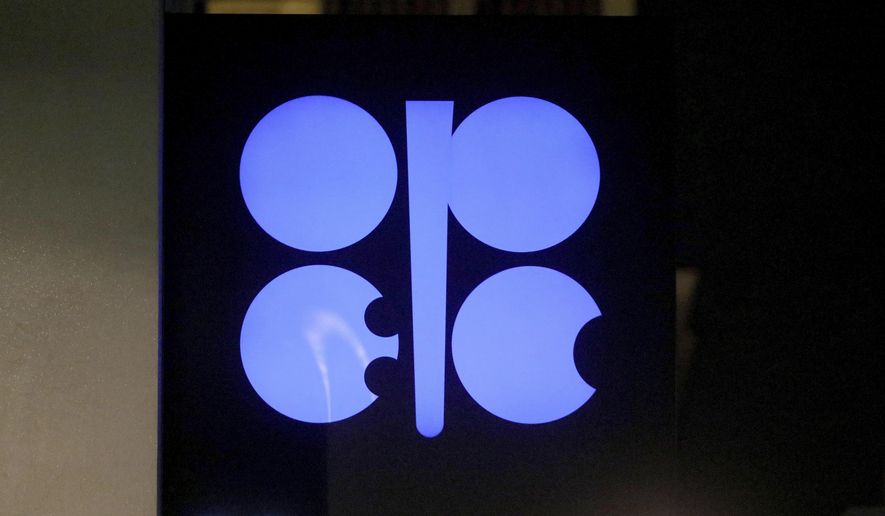FRANKFURT, Germany (AP) - Leaders of the OPEC oil cartel adjourned their virtual meeting Monday on future production as no agreement was announced on whether to extend output cuts into next year.
The OPEC nations, led by Saudi Arabia, will reconvene Tuesday, according to a short statement from the cartel’s Vienna headquarters. The talks will include additional members from a wider group, known as OPEC Plus, that also includes Russia.
There had been speculation that the cartel would agree to keep its production at a reduced level for a longer period of time in order to support oil prices as the economic slowdown caused by the pandemic has slashed demand for energy.
It’s tricky to predict how much oil the world will need with coronavirus cases surging around the world. There have been some hopeful signs for the economy, with several drug companies reporting promising results from coronavirus vaccine trials.
But some experts warn that oil demand may never fully recover, because the coronavirus travel restrictions, combined with the steps governments and corporations are taking to reduce use of fossil fuels to combat global warming, may have put a permanent dent in oil demand.
Additionally, the coalition of oil-producing countries has been restricting its output for months, straining its members. And there are tensions over some countries that overproduce.
Analysts at Rystad Energy expect the group to extend current production curtailments for at least three months in 2021, but added that there are some countries resisting that idea.
“In today’s meeting if one thing was clear, it’s that some OPEC members were not delighted on the prospect, still holding a grudge for their laggard allies that did not reduce their production as much as promised,” said Bjornar Tonhaugen, Rystad’s head of oil markets, in an emailed comment. “Although everyone wants to boost production at some point, as fiscal budgets depend on it, most understand that low prices may do more harm than good.”
OPEC and its allies agreed to cut production in April by about 10 million barrels per day through July. Then in August, as some cities around the world took steps to re-open their economies, the group upped its production so it was cutting 7.7 million barrels per day through year-end. They planned to increase production in January so that the cuts would be just 6 million barrels per day.
But experts expect the group to continue with cuts of about 7.7 million barrels per day in the coming months. Saudi Arabia’s energy minister recently indicated willingness to revisit the agreement and prolong the cuts.
Complicating matters, Libya - which was exempt from cuts because of instability in the country - has ramped up production to about 1 million barrels per day, up from a low of just 100,000 barrels during the spring and summer, he said.
Energy forecasters have been lowering their estimates of how much oil will be needed. One reason: airline travel, especially for long-haul international trips, has been dramatically reduced, and is not expected to rebound for several years.
The international benchmark for crude oil was down 80 cents at $47.45 per barrel Monday. It traded below $20 a barrel at one point in April, when the pandemic was spreading rapidly around the world.
___
Bussewitz contributed from New York.




Please read our comment policy before commenting.